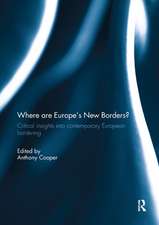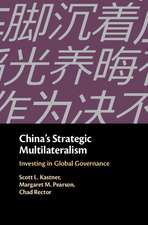The New Invisible College: Science for Development
Autor Caroline S. Wagner Cuvânt înainte de Francis Fukuyamaen Limba Engleză Paperback – aug 2008
The twentieth century was the era of "big science." Driven by strategic rivalries and fierce economic competition, wealthy governments invested heavily in national science establishments. Direct funding for institutions like the National Science Foundation and high-visibility projects, such as the race to the moon, fueled innovation, growth, and national prestige. But the big science model left poorer countries out in the cold. Today the organization of science is undergoing a fundamental transformation. In T he New Invisible College, Caroline Wagner combines quantitative data and extensive interviews to map the emergence of global science networks and trace the dynamics driving their growth. She argues that the shift from big science to global networks creates unprecedented opportunities for developing countries to tap science's potential. Rather than squander resources in vain efforts to mimic the scientific establishments of the twentieth century, developing country governments can leverage networks by creating incentives for top-notch scientists to focus on research that addresses their concerns and by finding ways to tie knowledge to local problem solving. T he New Invisible College offers both a guidebook and a playbook for policymakers confronting these tasks.
Preț: 254.08 lei
Nou
Puncte Express: 381
Preț estimativ în valută:
48.62€ • 50.58$ • 40.14£
48.62€ • 50.58$ • 40.14£
Carte tipărită la comandă
Livrare economică 14-28 aprilie
Preluare comenzi: 021 569.72.76
Specificații
ISBN-13: 9780815792130
ISBN-10: 0815792131
Pagini: 157
Dimensiuni: 152 x 229 x 15 mm
Greutate: 0.25 kg
Editura: Brookings Institution Press
Colecția Brookings Institution Press
ISBN-10: 0815792131
Pagini: 157
Dimensiuni: 152 x 229 x 15 mm
Greutate: 0.25 kg
Editura: Brookings Institution Press
Colecția Brookings Institution Press
Notă biografică
Caroline S. Wagner is lead research scientist at the Center for International Science and Technology Policy, George Washington University, and senior policy analyst at SRI International. She previously worked at the RAND Corporation and as a staff member for the House Committee on Science, Space, and Technology. A fellow of the American Association for the Advancement of Science, she has served as a member of the United Nations Millennium Task Force on Science, Technology, and Innovation and on the Advisory Board of Canada's Research on Knowledge Systems Program.
Descriere
The twentieth century was the era of "big science." Driven by strategic rivalries and fierce economic competition, wealthy governments invested heavily in national science establishments. Direct funding for institutions like the National Science Foundation and high-visibility projects, such as the race to the moon, fueled innovation, growth, and national prestige. But the big science model left poorer countries out in the cold. Today the organization of science is undergoing a fundamental transformation. In T he New Invisible College, Caroline Wagner combines quantitative data and extensive interviews to map the emergence of global science networks and trace the dynamics driving their growth. She argues that the shift from big science to global networks creates unprecedented opportunities for developing countries to tap science's potential. Rather than squander resources in vain efforts to mimic the scientific establishments of the twentieth century, developing country governments can leverage networks by creating incentives for top-notch scientists to focus on research that addresses their concerns and by finding ways to tie knowledge to local problem solving. T he New Invisible College offers both a guidebook and a playbook for policymakers confronting these tasks.

















